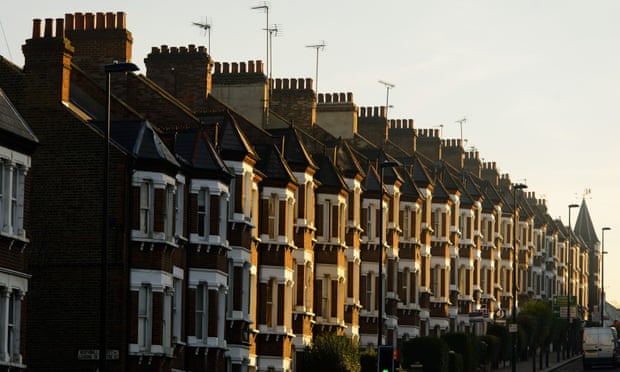Fears over Brexit caused British house prices to all but stagnate in 2018, rising by the smallest amount in almost six years, according to data from Nationwide.
Britain’s biggest building society said that compared with a year earlier, house prices rose by only 0.5% in December – the slowest annual rate of growth since February 2013.
House prices fell by 0.7% between November and December, it said. The average house price in the UK last month was £212,281 compared to £211,156 in December 2017, and just under £206,000 two years ago.
Uncertainty over the economic outlook appeared to be undermining confidence in the market, it warned.
However, there were wide regional variations in house price growth in 2018, with London and surrounding areas reporting a small fall.
Northern Ireland had the biggest house price rises, up 5.8%. Prices in Wales climbed 4%, in Scotland they were up 0.9% and across England they rose 0.7% on average.
Nationwide said it expected prices to rise at a “low single-digit pace” in 2019 but its forecast is dependent on the economy continuing to grow modestly, something that looks “unusually uncertain”.
Britain’s housing market has weakened since the June 2016 Brexit vote, led by price falls in London. At the time of the referendum, Nationwide’s measure of house prices was rising by about 5% a year.
“Brexit has smashed property market sentiment to smithereens,” said Jonathan Samuels, the chief executive of the property lender Octane Capital. “Borrowing rates may be low and the jobs market strong but a deep undercurrent of uncertainty is causing the vast majority of people to sit on their hands.
“What growth there is, is in the north, which hasn’t experienced the overexuberant price inflation of the capital and other areas of the south.”
Theresa May is struggling to overcome deep opposition in the Conservative party to the Brexit divorce deal the prime minister agreed with other EU leaders, raising the prospect of an economically damaging no-deal departure from the EU in March.
The Bank of England governor, Mark Carney, said last month that in the event of a “disorderly” departure from the EU – not the central bank’s base-case scenario – house prices could slump by 30% as part of a broader economic shock.
The Bank of England published figures on Friday showing that lending to British consumers grew at its slowest pace in nearly four years in November.
The Bank said the number of mortgages approved for house purchase fell to 63,728 in November, the lowest figure since April and down from 66,709 in October.
The annual growth rate in unsecured consumer lending slowed to 7.1% from 7.4% in October, the Bank’s figures showed; the slowest increase since March 2015.
www.theguardian.com/

